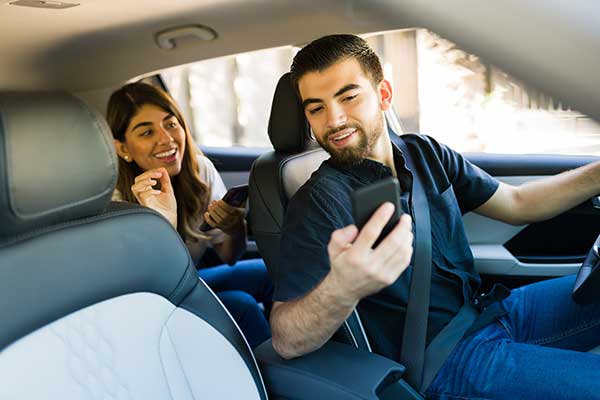Your Uber drop off is complete – but is your insurance coverage?

Ridesharing, delivery and car sharing can be great ways for educators to make some extra income. However, it's important to know that if you're using your personal vehicle to earn money, you may have a gap in auto coverage.
Let's break down these popular side gigs and the coverage needed for each.
Ridesharing is when you use your personal vehicle to transport people or goods and is facilitated by a Transportation Network Company (TNC), such as Uber, Lyft, DoorDash or GrubHub.
Most ridesharing companies offer some insurance coverage, but it varies by company and often has limitations. For example, you may have coverage from the TNC while you're driving with a passenger, but you won't be covered while you're in between rides. Ridesharing is typically excluded from a personal auto policy, which means you'll need to add a rideshare coverage endorsement through your primary insurer to fill the coverage gap and be fully protected.
Delivery is whenever you use your personal vehicle to deliver products that are not facilitated by a TNC, such as delivering pizzas or newspapers. This type of activity is not excluded from a Horace Mann auto policy, so you would be covered under your standard policy in the event of an accident. However, other carriers’ auto policies may exclude this type of activity, so it’s important to review your policy documents and talk to your representative to determine any gaps in coverage.
Car sharing is when you allow others to rent your personal vehicle for a specific period of time through a car sharing app, such as Turo and Zipcar. Car sharing is often excluded from personal auto policies. While some car sharing companies offer state minimum coverage options, there are often limitations in those policies that could leave you at risk. If you plan to participate in peer-to-peer car sharing, you’ll need to talk to your primary insurer about purchasing a commercial auto insurance policy.
Whether you're transporting travelers to the airport or dropping off dinner to a family of four, the most important thing is that you're properly protected. So, if you're using your vehicle to make some extra income, be sure to disclose that information to your insurance provider so they can properly assess your situation and determine your coverage options.
The information provided here is for general informational purposes only and should not be considered a recommendation.